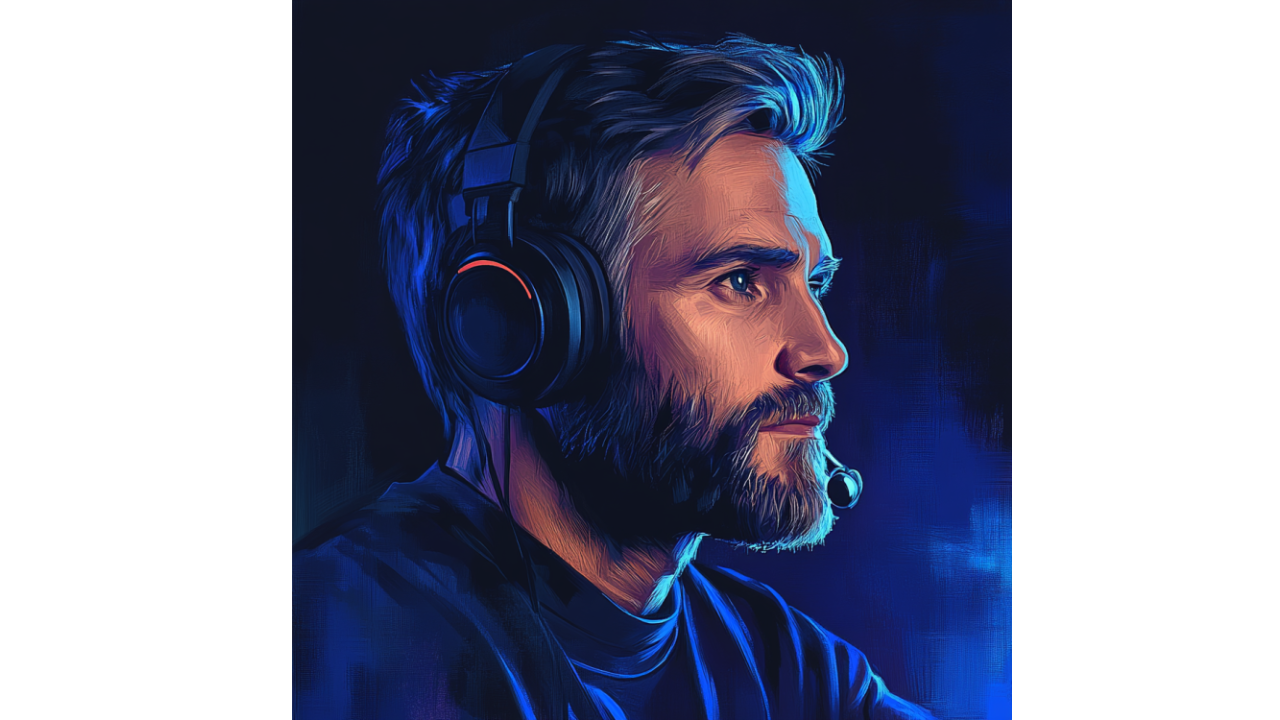Zillow Premier Agent vs. Real Estate Landing Pages: Which Drives More Quality Leads?
When it comes to generating real estate leads, agents have more options than ever before. Two of the most common methods include leveraging Zillow...
5 min read
 Writing Team
:
May 9, 2025 4:46:02 PM
Writing Team
:
May 9, 2025 4:46:02 PM

We've observed something peculiar in real estate marketing: while video tours and social media dominate conversations about digital strategy, audio remains curiously underutilized. This creates a strategic opening. The intimate nature of podcast listening—often occurring during commutes, workouts, or household tasks—offers real estate professionals an unparalleled opportunity to build trust through sustained attention.
The numbers confirm this opportunity. Nearly half of Americans now listen to podcasts monthly, with the average listener consuming eight episodes weekly. Regular podcast listeners feel a "personal connection" to hosts—precisely the relationship real estate agents need to cultivate with potential clients.
The fatal flaw in most realtor podcasts isn't production quality but conceptual clarity. Before purchasing a single piece of equipment, you must stake a clear claim on specific intellectual territory.
The National Association of Realtors' 2024 Digital Consumer Report reveals that successful real estate podcasts typically occupy one of four strategic positions:
This positioning isn't merely marketing—it's the foundation of your podcast's entire existence. The most successful real estate podcasts we've analyzed occupy a clear territory and resist the temptation to be everything to everyone.
The equipment debate often derails promising real estate podcasts before they launch. We advocate for a purpose-driven approach that matches your technical setup to your specific context.
For most real estate professionals, we recommend starting with this fundamental setup:
This approach prioritizes sound quality without creating unnecessary complexity or expense. According to Inside Real Estate's 2024 Technology Survey, excessive equipment complexity ranks among the top three reasons real estate professionals abandon podcast projects. The goal isn't studio perfection but professional adequacy.
For mobile recording (interviewing clients or conducting neighborhood tours), consider adding a portable recorder like the Zoom H5 ($280) or smartphone-compatible microphones like the Rode Wireless GO II ($299). These investments pay dividends when creating location-specific content that differentiates your podcast.
The most successful real estate podcasts we've studied operate from what we call a "content architecture"—a systematic approach to episode planning that balances creativity with sustainability.
This architecture typically includes:
As an example, "The Denver Property Perspective" podcast operates with four episode categories:
This architecture allows them to maintain consistency while avoiding the twin dangers of repetition and random content creation. Each category serves specific business purposes: Market Analysis establishes authority, Neighborhood Spotlights demonstrate local expertise, Transaction Tales provide social proof, and Expert Conversations expand their referral network.
The distribution bottleneck kills most real estate podcasts. Many agents mistakenly believe that publishing to Apple Podcasts and Spotify constitutes a complete distribution strategy. The reality is more demanding—and more promising.
Effective podcast distribution for real estate professionals operates on three levels:
This multi-layered approach recognizes that podcast distribution isn't merely technical but social. According to the 2024 Real Estate Marketing Benchmark Report from Curaytor, the most successful agent podcasters generate 4.7x more engagement by transforming audio content into platform-specific formats rather than simply sharing episode links.
For example, a 30-minute interview about a neighborhood can become:
This transformation process extends your podcast's reach beyond dedicated audio listeners to your broader sphere of influence.
We've identified a critical pattern among successful real estate podcasters: they create deliberate pathways that transform casual listeners into clients. This doesn't happen accidentally—it requires intentional design of what we call the "listener-to-client journey."
This journey typically includes:
Podcasters who create specific conversion points within their content see higher conversion rates than those who simply mentioned their services.
This strategic approach treats your podcast not as a sales platform but as the beginning of a relationship that can lead to transactions when handled with appropriate care.
While client acquisition represents the primary monetization strategy for most real estate podcasts, additional revenue streams can support your podcast's growth and sustainability.
Based on our work with successful real estate podcasters, we've identified four viable monetization frameworks:
The effectiveness of these frameworks depends on your podcast's positioning and audience size. For example, a podcast focused on first-time homebuyers might create premium content explaining financing options, while a luxury property podcast might establish a referral network with agents in other high-end markets.
Podcasts with at least 1,000 monthly listeners can typically secure sponsorships from relevant service providers (lenders, title companies, home inspectors). This supplementary revenue can offset production costs while you build the listener base that drives your primary monetization strategy: client acquisition.
Based on our work with dozens of real estate podcasters, we recommend this structured approach for your first 90 days:
Days 1-30: Foundation Building
Days 31-60: Launch and Refinement
Days 61-90: System Optimization
This phased approach prevents the overwhelm that derails many podcasting projects by focusing your attention on the highest-impact activities at each stage of development.
We believe real estate professionals win in podcasting not through technical perfection but through strategic clarity. The agents who succeed with audio content aren't necessarily the most polished performers—they're the ones who most precisely understand their audience's needs and consistently deliver content that addresses those needs.
If you're ready to develop a podcast strategy that generates leads while building your authority in the market, our Podcast Development Workshop helps real estate professionals create sustainable audio content systems aligned with specific business objectives. We specialize in helping agents and brokers transform their expertise into podcast strategies that attract ideal clients while differentiating you from competitors. Contact our real estate marketing specialists to schedule a consultation.
-1.png)
When it comes to generating real estate leads, agents have more options than ever before. Two of the most common methods include leveraging Zillow...
-1.png)
First impressions aren't just made in person – they're made online. According to the National Association of Realtors' 2024 Home Buyers and Sellers...

In professional services, authority isn't merely claimed—it's architecturally designed. The most influential firms don't simply produce content; they...